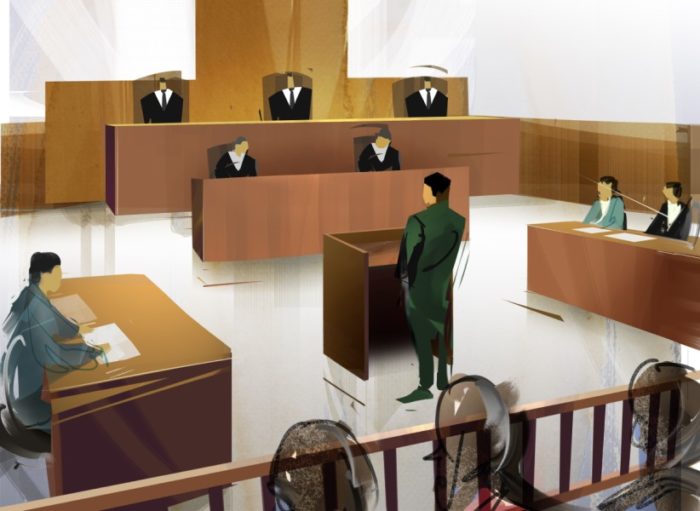
When a person dies, courts generally try to honor their wishes, as expressed in their will or trust instrument, surrounding the distribution of their assets to beneficiaries and heirs. If it’s unclear what the decedent’s final wishes were, inheritance disputes could emerge.
Perhaps the decedent’s estate planning documents contain ambiguities, or the applicable law is uncertain. Perhaps there is suspicion they made changes to their will or trust as a result of elder financial abuse, undue influence or fraud. Accountings are generally required with trusts and estates, so there may also be questions about whether a fiduciary acted improperly. When such circumstances exist, the matter may have to be resolved in the probate court.
As with most legal matters that end up in court, one or more parties are likely to be dissatisfied when the court issues its final ruling, leading them to ask: Can you appeal a probate decision? Or, conversely, how can you best defend the court’s decision in your favor if another party appeals?
Probate court appeals can be complicated. First of all, not every decision can be appealed; certain criteria must be met if you hope to successfully appeal a probate court decision. Furthermore, the time to appeal is limited. Because winning an appeal in probate court – either as the appellant or the respondent – is anything but easy, it helps to have a lawyer with ample appellate experience and a nuanced understanding of probate, trust and estate law.
When looking for a probate appeals attorney, it is a good idea to limit your search to lawyers with appellate experience whose practice solely focuses on probate law, since they are likely to have the combination of skills needed to provide you with the best chance of winning your probate appeal.
In this article, we discuss how to appeal a probate court decision in California, what it takes to successfully appeal a probate court decision, the types of probate decisions that can be appealed, and the time limits for bringing a probate appeal.
Can You Appeal a Probate Court Decision?
The short answer to whether you can appeal a probate decision is that it depends. If you can answer “yes” to all the questions below, and if you act promptly, you most likely can appeal the probate court decision. But, to be sure, you should discuss your case with an experienced probate appeals attorney.
Has the Probate Court Issued a Final Order?
As with most types of cases, the court generally has to issue a final order before a probate appeal can be launched. However, what’s different with probate is that the entire case does not have to be decided in order to appeal a probate court decision in California. Since the court can pass down numerous decisions over the course of trust and estate administration, a final order may only be required for the specific decision you wish to appeal.
As an example, within the same decedent’s estate, one matter may relate to misconduct on the part of the executor and another matter may be a will contest. If you wish to appeal the probate court decision relating to executor misconduct, it may not be necessary for you to wait for the will contest case to conclude before bringing your appeal; furthermore, it may be too late to appeal if you do wait.
Did the Court’s Decision Involve a Specific Legal Error or Factual Mistake?
Simply disagreeing with the court’s decision is not a basis for a probate appeal. To have grounds for an appeal, you generally must be able to show the error from the record before the probate court that the probate judge made a mistake in interpreting or applying the law, committed an error in deciding what evidence could or could not be considered, or had no basis from the facts before them to support the decision made.
For example, if the court made its judgment based on evidence you offered, but, in error, refused to consider it, you might have a basis for an appeal. But, if you never offered the fact that you are now contending should change the result, or if you offered it but there is no record of your having done so, the fact would likely be excluded as part of the probate court appeals process.
Did the Error Affect the Outcome of the Case?
While you need to demonstrate error to be successful in your appeal of a probate court decision, that is not enough to have a solid chance at winning an appeal in probate court. You also must prove the alleged error was prejudicial, meaning that it affected the outcome of the case.
To determine this, ask yourself: If the error hadn’t been made, would the court’s decision have been different? If the answer is “yes,” then you likely have the grounds to launch a probate appeal. If the answer is “no,” then the appellate court may deny your appeal.
Getting Help to Appeal a Probate Court Decision
Winning an appeal in probate court is no easy feat, nor is it likely to be inexpensive. That’s why it is best to speak with a probate appeals attorney as soon as possible about what occurred in probate court as well as about what you hope to achieve through an appeal before initiating the process.
A probate attorney experienced in appeals and in trust and estate administration and litigation will be able to provide insight into the strength of your appeal after reviewing the facts and law surrounding it.

As mentioned in the previous section, for a probate court appeal to have merit, your case must satisfy certain criteria. Not only will you have to explain on appeal the law and facts that show prejudicial error by the probate court, but you also will have to comply with the procedures for appeals to have any chance of winning an appeal in probate court — and those procedures are different from what you and your trial attorney experienced before in the probate court. You are more likely to have success on appeal with help from estate and trust attorneys who are experienced in litigating appeals.
With a probate appeals attorney in your corner, you will not only be able to navigate your probate court appeal with ease, but you will have the benefit of a fresh look at your case. Appeals are not usually won by presenting arguments to the court in the same way they were previously presented to the probate court and hoping for a better result. And if you were the party who won in the probate court, you cannot be certain that just refiling the arguments that won previously will also result in a win on appeal. A probate appeals attorney can help you present your case to the appellate judges in the best possible light after reviewing the factual record and re-examining the applicable law.
In sum, your chances of winning an appeal may be improved with attorneys who litigate probate cases day in and day out and also have appellate experience — such as the trust and estate attorneys at Keystone Law. Appeals can be more complex than the original case in probate court, so you should have attorneys on your side who possess the skills and experience needed to address the new challenges that may arise during the probate appeals process.

What Is the Time Limit to Appeal a Probate Court Decision?
Probate court appeals must be brought within a short, specified timeframe after the subject order is entered; otherwise, they are time-barred. So, if you believe the court’s decision to be erroneous, it is important you act quickly to retain a probate appeals attorney. This step is best taken no later than when you are notified of the probate court’s unfavorable decision.
California Rule of Court 8.104(a)(1) sets the time limits for appeals, which may be as short as 60 days after the judgment or order is entered. The rules states:
“(1) Unless a statute or rules 8.108, 8.702, or 8.712 provides otherwise, a notice of appeal must be filed on or before the earliest of:
(A) 60 days after the superior court clerk serves on the party filing the notice of appeal a document entitled ’Notice of Entry’ of judgment or a filed-endorsed copy of the judgment, showing the date either was served;
(B) 60 days after the party filing the notice of appeal serves or is served by a party with a document entitled ’Notice of Entry’ of judgment or a filed-endorsed copy of the judgment, accompanied by proof of service; or
(C) 180 days after entry of judgment.
(2) Service under (1)(A) and (B) may be by any method permitted by the Code of Civil Procedure, including electronic service when permitted under Code of Civil Procedure section 1010.6 and rules 2.250-2.261.
(3) If the parties stipulated in the trial court under Code of Civil Procedure section 1019.5 to waive notice of the court order being appealed, the time to appeal under (1)(C) applies unless the court or a party serves notice of entry of judgment or a filed-endorsed copy of the judgment to start the time period under (1)(A) or (B).”
(Rule 8.108 may apply when certain motions are timely filed after entry of the subject order or judgment. Rules 8.702 and 8.712 do not apply to probate appeals; they are rules for review of California Environmental Quality Act cases.)
There are rare occasions where you may want to file a petition for a writ to the Court of Appeal. This is an expedited procedure that may be used (but is rarely successful) when a party challenges an order of the probate court that is otherwise “unappealable” or for which any remedy by appeal would be inadequate, perhaps because of time concerns. The writ petition asks the Court of Appeals to order the probate court to change its order. Writ petitions have different time limits than usual appeals as well as special procedural rules.
Since the laws relating to probate appeals time limits are so technical, it is a good idea to have a probate appeals attorney on your team to help you navigate them. A missed deadline to file an appeal usually means that you’ve missed your chance to bring an appeal.

What Types of Probate Decisions Can Be Appealed?
The California Probate Code is specific about which types of probate decisions can be appealed.
California Probate Code section 1300 governs general appealable probate decisions and allows appeals from the making of, or the refusal to make, any of the following orders:
“(a) Directing, authorizing, approving, or confirming the sale, lease, encumbrance, grant of an option, purchase, conveyance, or exchange of property.
(b) Settling an account of a fiduciary.
(c) Authorizing, instructing, or directing a fiduciary, or approving or confirming the acts of a fiduciary.
(d) Directing or allowing payment of a debt, claim, or cost.
(e) Fixing, authorizing, allowing, or directing payment of compensation or expenses of an attorney.
(f) Fixing, directing, authorizing, or allowing payment of the compensation or expenses of a fiduciary.
(g) Surcharging, removing, or discharging a fiduciary.
(h) Transferring the property of the estate to a fiduciary in another jurisdiction.
(i) Allowing or denying a petition of the fiduciary to resign.
(j) Discharging a surety on the bond of a fiduciary.
(k) Adjudicating the merits of a claim made under Part 19 (commencing with Section 850) of Division 2.”
Regarding decedent’s estates specifically, California Probate Code section 1303 allows an appeal from the granting, or refusal to grant, these orders:
“(a) Granting or revoking letters to a personal representative, except letters of special administration or letters of special administration with general powers.
(b) Admitting a will to probate or revoking the probate of a will.
(c) Setting aside a small estate under Section 6609.
(d) Setting apart a probate homestead or property claimed to be exempt from enforcement of a money judgment.
(e) Granting, modifying, or terminating a family allowance.
(f) Determining heirship, succession, entitlement, or the persons to whom distribution should be made.
(g) Directing distribution of property.
(h) Determining that property passes to, or confirming that property belongs to, the surviving spouse under Section 13656.
(i) Authorizing a personal representative to invest or reinvest surplus money under Section 9732.
(j) Determining whether an action constitutes a contest under former Chapter 2 (commencing with Section 21320) of Part 3 of Division 11, as that chapter read prior to its repeal by Chapter 174 of the Statutes of 2008.
(k) Determining the priority of debts under Chapter 3 (commencing with Section 11440) of Part 9 of Division 7.
(l) Any final order under Chapter 1 (commencing with Section 20100) or Chapter 2 (commencing with Section 20200) of Division 10.”
As for trusts, California Probate Code section 1304 allows an appeal from the granting, or refusal to grant, these orders:
“(a) Any final order under Chapter 3 (commencing with Section 17200 ) of Part 5 of Division 9, except the following:
(1) Compelling the trustee to submit an account or report acts as trustee.
(2) Accepting the resignation of the trustee.
(b) Any final order under Chapter 2 (commencing with Section 19020 ) of Part 8 of Division 9.
(c) Any final order under Part 1 (commencing with Section 20100 ) and Part 2 (commencing with Section 20200 ) of Division 10.
(d) Determining whether an action constitutes a contest under former Chapter 2 (commencing with Section 21320 ) of Part 3 of Division 11, as that chapter read prior to its repeal by Chapter 174 of the Statutes of 2008.”
There also are specific statutes governing appeals from protective proceedings such as guardianships and conservatorships (California Probate Code section 1301) and from cases under the Conservatorship Jurisdiction Act (California Probate Code section 1301.5), Power of Attorney L
Need help with a probate court appeal? Our probate appeals attorneys are here for you.
If the court has issued a decision in your probate matter that you find to be erroneous, or if another party is unhappy with an order in your favor, you may be wondering: Can that probate decision be appealed? What are the steps involved in bringing or defending an appeal of a probate court decision, and when does an appeal have to be filed? Can the order being appealed be enforced while an appeal is pending? Does any other part of the case proceed in probate court during the appeal?
The probate appeals process can be just as complicated as — if not more complicated than — trust or estate administration. As a result, having a knowledgeable probate appeals attorney in your corner can be invaluable in taking, or defending, an appeal. Our attorneys are standing by to answer your probate appeals questions. Call us today to request a free consultation.




